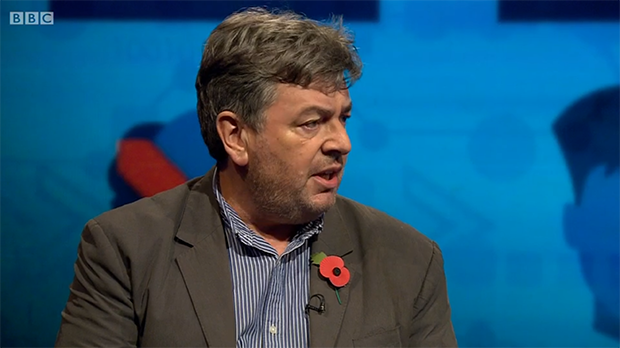18 May 2016 | Bosnia, Europe and Central Asia, Mapping Media Freedom, mobile, News and features, Russia, Turkey, United Kingdom

Each week, Index on Censorship’s Mapping Media Freedom project verifies threats, violations and limitations faced by the media throughout the European Union and neighbouring countries. Here are five recent reports that give us cause for concern.
The Russian state media regulator Roskomnadzor began blocking Krym Realii, the Сrimean edition of Radio Free Europe / Radio Liberty on Saturday 14 May.
A representative of Roskomnadzor confirmed that the regulator had blocked a page, which contains an interview with a leader of the Tatar Mejlis, at the request of the general prosecutor office. “Currently, Roskomnadzor is implementing measures for blocking and closing this website,” criminal prosecutor Natalia Poklonskaya told Interfax.
Krym Realii was established following the annexation of Crimea to Russia. Materials on the site are published in Russian, Ukrainian and Crimean Tatar languages.
Several editors at RBC media holding lost their jobs on 13 May following a meeting between top management with journalists. They include RBC editor-in-chief Elizaveta Osetinskaya, editor-in-chief of the RBC business newspaper Maksim Solyus, and RBC deputy chief editor Roman Badanin.
In a press release, RBC underlined that the dismissals were finalised as a mutual agreement of both parties, but sources from TV-Dozhd and Reuters claim managers have bowed to political pressure from the Kremlin.
The pressure against RBC began following investigations that have reportedly “irked the Kremlin“, including one on the assets of Vladimir Putin’s alleged daughter, Ekaterina Tikhonova.
Petar Panjkota, a journalist for the Croatian commercial national broadcaster RTL, was physically assaulted after he had finished a segment from the Bosnian town Banja Luka on 14 May.
Panjkota was reporting on parallel rallies in Banja Luka, the administrative centre of Bosnia’s Serb-dominated of Republika Srpska. He was reporting on protests organised by the ruling and opposition parties of the Bosnian Serbs. When he went off air, Panjkota was punched in the head by an unidentified individual, leaving bruises.
RTL strongly condemned the attack, calling it another attack on media freedom. No information has surfaced on the identity of the assailant.
On 12 May, the long-awaited white paper on the future of the BBC was unveiled. The BBC Trust is to be abolished and replaced by a new governing board including ministerial appointees. The board will be comprised of 12 to 14 members: the chair, deputy chair and members for each of the four nations of the UK will be appointed by the government and the remaining seats will be appointed by the BBC.
“It is vital that this appointments process is clear, transparent and free from government interference to ensure that the body governing the BBC does not become simply a mouthpiece for the government,” Jodie Ginsberg, CEO of Index on Censorship, said.
“Independence from government is essential for the BBC and these proposals don’t quite offer that,” Richard Sambrook, director of the Centre for Journalism at Cardiff School of Journalism, Media and Cultural Studies and former BBC journalist, told Index on Censorship. “There is no reason the board can’t be appointed by an arms length, independent panel. Currently the plans are too close to a state broadcasting model.”
Two reporters working for Dicle News Agency (DİHA) reporters were detained in the eastern city of Van on 12 May. Nedim Türfent and Şermin Soydan were allegedly detained within the scope of an on-going investigation and taken to the anti-terror branch in the central Edremit district of Van.
Both were detained separately. According to Bestanews website, Nedim Türfent was detained when his car was stopped by state forces at the entrance of Van. Şermin Soydan was detained on her way to cover news in the city of Van.
13 May 2016 | About Index, Campaigns, Campaigns -- Featured, Statements
In restructuring the governance structure of the British Broadcasting Corporation, it is crucial that the government ensures the corporation’s independence and role as a public broadcaster not a state broadcaster.
The government has proposed replacing the current BBC Trust, the current governing body of the BBC, with a unitary board of 12-14 members that would be responsible for ensuring the BBC acts in the public interest. Half of the board members will be appointed by the BBC itself and the other half by a public appointments process, led by the government.
“It is vital that this appointments process is clear, transparent and free from government interference to ensure that the body governing the BBC does not become simply a mouthpiece for the government,” Jodie Ginsberg, CEO of Index on Censorship, said.
2 Nov 2015 | Academic Freedom, Europe and Central Asia, mobile, News and features, United Kingdom

One of the truly great things about being a student used to be the exposure university life gave you to all sorts of views — absurd and otherwise — and being able to decide for yourself what to make of them. Students were once known for their dedication to free speech and academic freedom, epitomised by the Free Speech Movement at the University of California, Berkeley, 1964-65.
In 2015, students are more renowned for the practice of trying to ban anyone they believe to have dangerous views in order to protect fellow tutees, whether it’s removing the Sun from the shelves or refusing airplay to Robin Thicke’s Blurred Lines. We witnessed this tendency most recently with the petition to ban Germaine Greer from speaking at Cardiff University because of her “misogynistic views towards trans women”.
Index on Censorship chairman David Aaronovitch appeared on BBC Newsnight on Thursday to debate free speech at universities with Toke Dahler, a representative of Leeds University student union. Dahler said that “it’s up to students” to decide where the threat lies, and it is the student union’s responsibility to then “make sure that students feel safe and feel welcome”.
For Aaronovitch, student unions should be places of lively debate and discussion, rather than places where students are “hermetically sealed away behind a form of intellectual rampart within which they can feel safe”. The problem with Dahler’s view, said Aaronovitch, is one of definition. What do we mean by safe? Who exactly feels unsafe? And what do they feel unsafe from?
The full interview is available on BBC iPlayer until 28 November. You can watch it here (starts at 27:40).
2 Oct 2014 | Europe and Central Asia, News and features, United Kingdom

Supporters of Scottish independence protested against alleged BBC bias ahead of the referendum on 18 September (Image: Mishka Burr/YouTube/Creative Commons)
Benito Mussolini wrote romantic fiction. Of course he did. Maudlin sentimentality is at the very heart of fascism, which is why we should be keeping a closer eye on Mrs Brown’s Boys.
The Cardinal’s Mistress (or to give it its typically grandiose full title: Claudia Particella, Lamante del Cardinale, Grande Romanzo dei Tempi del Cardinale Emanuel Madruzzo) was written in the first decade of the 20th century, when the future dictator was still playing with socialism before he came up with his big idea. It was originally published as a serial in La Vita Trentina, the weekly supplement of socialist newspaper Il Popolo.
Reviewing an English translation of the work in 1928, Dorothy Parker, who admits to er, struggling with the book, dreamed of a scene “in which I tell Mussolini ‘And what’s more, you can’t even write a book that anyone could read. You old Duce you,’” before deadpanning, “You can see for yourself how flat that would leave him.”
It’s unclear whether or not Mussolini was left flat, or even read Parker’s New Yorker magazine review. But it’s possible to imagine that the negative review haunted him to the very end, that Il Duce spent his last days still pondering whether to write an angry letter to the New Yorker, pointing out that since Parker had admitted that she HADN’T EVEN FINISHED THE BOOK, it was a SERIOUS LAPSE of journalistic and critical standards to even run the review, and a sign of how a ONCE GREAT publication had been given over to cheap jibes and sarcasm instead of proper discussion of literary works [and so on, ad lamppostium].
One can imagine his supporters on Twitter, furiously @-ing the poor Parker: “Call yourself a journalist? #NewYorkerBias”, “MSM once again Misreprasents #IlDuce. #NoSurprise (@medialens)”, “So apparently this ‘Parker’ woman is actually a ROTHSCHILD? #BoycottNewYorker”, and so on and on and on and on and wearily on.
You know the kind of thing, because we see it every week now. The dull, thudding obsession with the idea that the media, or a section of the media is involved in some enormous conspiracy against you and your views, and subsequently the belief that that is the only reason not everyone shares your views.
The Scottish independence referendum was a case in point. Yes supporters became curiously obsessed with the BBC’s Nick Robinson and his apparent conservative sympathies. Now, Robinson, like many BBC hacks before him, (Andrew Marr? Socialist Organiser; Paul Mason? Workers’ Power; Jennie Bond? Class War), was politically active in his youth, rising to be president of the equal parts hilarious and horrendous Oxford University Conservative Association. This, plus a terse exchange between Robinson and Scottish Nationalist leader Alex Salmond over a media conference question Robinson felt Salmond had not answered properly, led to hundreds of nationalists converging on BBC Scotland’s headquarters claiming the BBC was biased against them and demanding, well, something.
This was bad enough, but they were egged on by Salmond himself, who said he thought there was “real public concern in terms of some of the nature and balance of the coverage”.
Calls for “balance” are almost always, in fact, calls for more-of-my-side and less-of-the-opposition. This was beautifully demonstrated by the number of complaints logged against the BBC in August about the most recent Israel-Palestine conflict. That month, 938 people complained that the BBC’s coverage was too favourable to the Palestinians, while 813 felt it the corporation was too favourable to the Israeli side. (Incidentally, in the same month over 350 people complained that the BBC had been too pro-independence in its broadcast of a Scottish referendum debate.)
The most embarrassing spectacle of the entire referendum came the days after the vote, when the nationalists had lost. The SNP sulkily decided they would bar right-wing, pro-union newspapers from the morning media conference. Salmond allegedly then tried to handpick which reporter from The Guardian would be allowed attend. The Guardian, doubly affronted by the ban on their press pack colleagues and Salmond’s demands upon it, rightly told Salmond they would skip the conference altogether.
The SNP are far from the only people to think they can demand good coverage and prevent dissent. Mark Ferguson, of the left-wing, trade-union-supported website Labour List, was recently informed that he would not be given a press pass for the Conservative party conference in Birmingham. It was only after other journalists raised their objections via Twitter that the Conservative party relented. It’s probably true to say that the Labour blogger’s coverage would not be the most pro-Tory, but that’s really not the point.
Meanwhile, in the wide world of sport, Newcastle United’s controversial owner owner Mike Ashley has decided that the Daily Telegraph’s Luke Edwards (and anyone else from the Telegraph, for that matter) will not be allowed near the club’s ground again, after Edwards reported rumours that Ashley may be seeking to sell the club.
There is an argument that Ashley generates enough bad publicity for himself without the assistance of apparently hostile journalists (Ashley recently caused confusion after telling a reporter with The i newspaper that club manager Alan Pardew would be “finished” and “dead” if Newcastle lost their next game), but that doesn’t make the move any less thin-skinned and censorious.
Football has form on this. Sir Alex Ferguson may have been the greatest manager of the modern era, but he was also so petty as to refuse to talk to the BBC for seven years after he objected to a documentary about his son aired by the national broadcaster.
Perhaps this tetchiness is what’s needed to get ahead, but it feels increasingly like a retreat from argument, and a retreat from the idea of open debate and a robust public sphere. We won’t accept arguments counter to our own, and if those arguments prove more popular than ours, it is not because ours may need rethinking. No, it is because the world is biased against us. We’re either being silenced by the metropolitan liberals, or censored by the public school Tory elites. Our public conversation is in danger of becoming a public whinge.
Correction 15:40, 2 October: An earlier version of this article stated that Paul Mason was in Workers’ Hammer.
This article was published on Thursday 2 October at indexoncensorship.org



